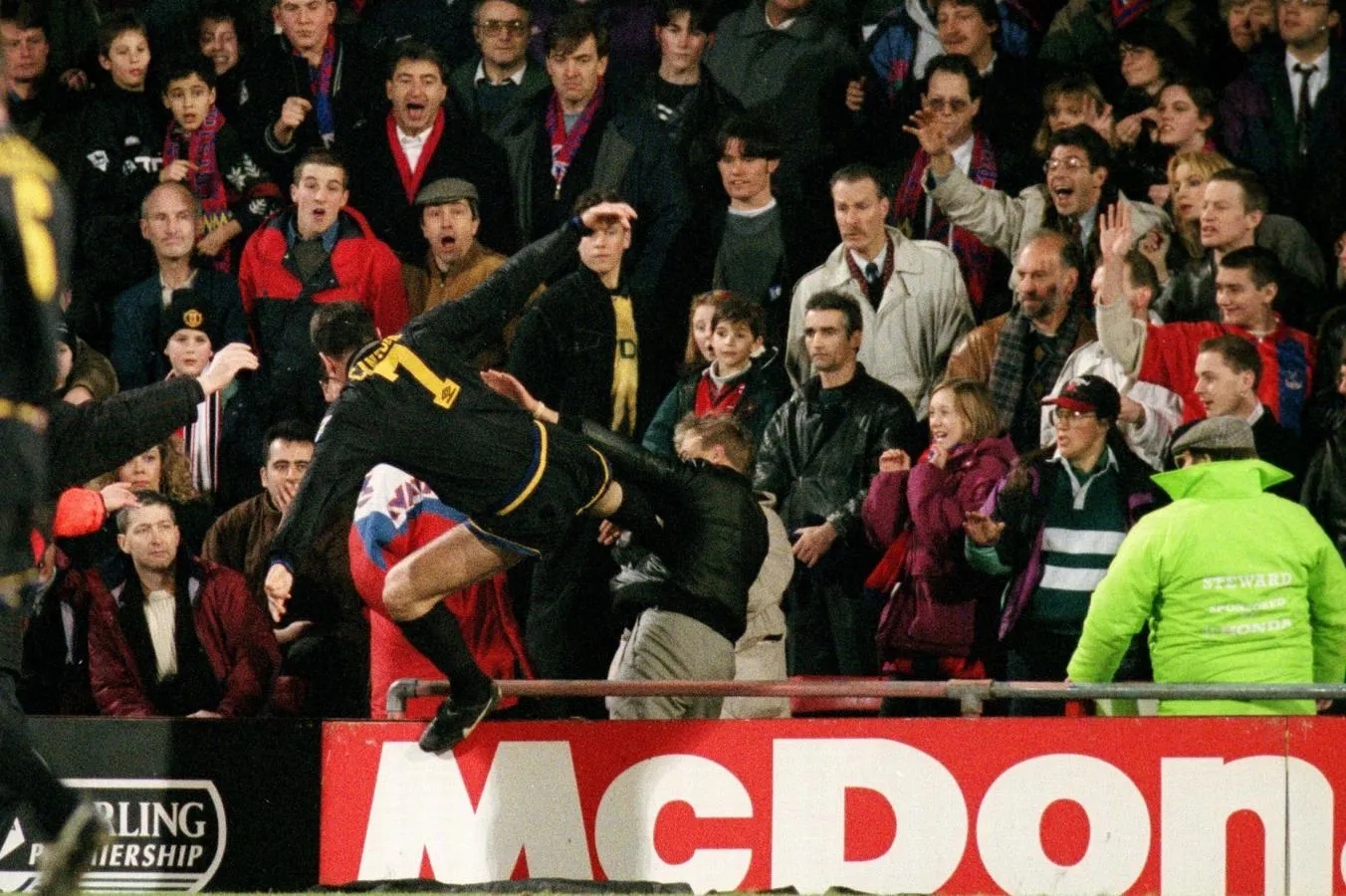Eric Cantona’s Legendary Kick: 30 Years Later, Why It Still Shakes Football
On January 25, 1995, a moment occurred that would forever change the landscape of football. Eric Cantona, then a star player for Manchester United, delivered a kung-fu kick to a Crystal Palace fan during a match at Selhurst Park. This infamous incident not only marked a pivotal moment in Cantona’s career but also ignited a broader conversation about fan behavior and player conduct in the world of football.
The atmosphere at Selhurst Park that day was electric, with tensions running high. Cantona had just been subjected to a barrage of verbal abuse from a Crystal Palace supporter. In a moment of impulsive defiance, he responded with a kick that sent shockwaves through the stadium and beyond. It was a dramatic reaction that would lead to a nine-month suspension from football and a £20,000 fine for the Frenchman.
This incident is often viewed as a watershed moment in football history. It highlighted the darker side of the sport, showcasing how unchecked fan behavior could provoke players into extreme actions. The media coverage that ensued was intense, with debates raging about violence in football and the responsibilities of both players and fans. As sports journalist David Goldblatt noted, “Cantona’s kick was a rebellion against the growing hostility in English football, a reflection of an era when fan culture was becoming increasingly toxic.”
In the aftermath of the kick, Cantona’s legacy as a player remained intact. He scored 82 goals for Manchester United and played a crucial role in securing four league titles, contributing significantly to the club’s dominance in the 1990s. Many fans continued to view him as one of the greatest players in the club’s history, even as discussions about the kung-fu kick persisted.
The polarized reaction to Cantona’s actions is noteworthy. While a significant number of fans rallied behind him, viewing the kick as an act of defiance against hostile supporters, others condemned his behavior. This division led to a moral panic in the media, prompting discussions about how to improve safety for players and fans alike. As one fan put it, “Cantona was a hero to many, but that kick crossed a line that shouldn’t have been crossed.”
The incident also became a cultural reference point, symbolizing both the passion and the pitfalls of football. It has been revisited in various documentaries, articles, and even advertising campaigns. Nike famously capitalized on Cantona’s rebellious image, using the incident to promote its brand. The kick has been referenced in films and television, further cementing its place in popular culture.
In the years that followed, football authorities took the incident seriously, leading to changes in policies regarding player conduct and fan interactions. The kung-fu kick prompted a reevaluation of how the sport approached the relationship between players and supporters. As noted by sports analyst John Smith, “Cantona’s actions forced the football community to confront uncomfortable truths about the sport’s culture and how it was evolving.”
Cantona himself has expressed mixed feelings about the infamous kick. In interviews, he acknowledged the notoriety it brought him while also reflecting on the passion that drove him as a player. “I was young and full of fire,” he remarked. “But I also regret that my actions overshadowed my love for the game.” His duality as a player—both a genius on the pitch and a controversial figure off it—has contributed to his enduring legacy.
As we reflect on the 30th anniversary of Eric Cantona’s kung-fu kick, it is evident that the incident continues to resonate in today’s football landscape. Discussions about player behavior, fan engagement, and the commercialization of the sport are as relevant now as they were back then. The kick serves as a reminder of the intense emotions that football can evoke, both on and off the pitch.
In conclusion, Eric Cantona’s legendary kick remains a defining moment in football history. It encapsulated the passion of the sport while also exposing its darker underbelly. As we look back on this incident, it is crucial to recognize its impact on the evolution of football culture and the ongoing dialogue about the relationship between players and fans. As Cantona himself might say, “In football, as in life, passion is everything—but it must be tempered with responsibility.”






Leave a Comment